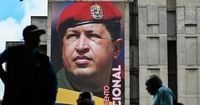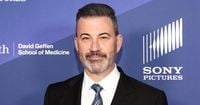Jimmy Kimmel’s return to late-night television on September 23, 2025, was more than just a comeback—it was a flashpoint in a growing battle over free speech, media influence, and political power in America. The saga began when Disney, the parent company of ABC, suspended Kimmel’s show on September 17, just two days after his monologue addressed the murder of right-wing activist Charlie Kirk. In that now-infamous segment, Kimmel accused supporters of then-President Donald Trump of attempting to politicize Kirk’s killing and "score political points" from the tragedy.
On his first night back, Kimmel faced his audience with a somber tone, making it clear he never intended to make light of Kirk’s death or assign blame to any group. "It was never my intention to make light of the murder of a young man. I don't think there's anything funny about it," Kimmel said, his voice wavering with emotion. "Nor was it my intention to blame any specific group for the actions of what was obviously a deeply disturbed individual—that was really the opposite of the point I was trying to make," Reuters reported.
Kimmel’s return, however, did little to quiet the storm. Before the episode aired, Trump took to Truth Social to lambast ABC’s decision, declaring, "Why would they want someone back who does so poorly, who's not funny, and who puts the Network in jeopardy by playing 99% positive Democrat GARBAGE. He is yet another arm of the DNC (Democratic National Committee) and, to the best of my knowledge, that would be a major illegal Campaign Contribution. I think we're going to test ABC out on this."
The Trump administration’s ire was echoed by Federal Communications Commission (FCC) Chair Brendan Carr, who threatened an investigation and urged TV stations to drop Kimmel’s show or face potential fines and license revocation. According to Politico, Carr’s threats were explicit: if Disney and ABC didn’t "take action on Kimmel," they risked "suspension" of their broadcast licenses. Carr reportedly said, "We can do this the easy way or the hard way," a statement that left little room for ambiguity.
In response, Nexstar Media Group and Sinclair—two of the largest owners of local ABC affiliates—pulled Kimmel’s show from their lineups, effectively preempting it in more than 20% of ABC’s markets. As LateNighter noted, this meant a significant chunk of the country could not watch Kimmel’s much-anticipated return as scheduled. The move underscored the reach of political influence over media distribution in the current climate.
While Kimmel’s reinstatement was hailed by some as a victory for free expression, it also became a lightning rod for criticism from MAGA personalities and right-wing media figures. They argued that Disney’s decision insulted the memory of Charlie Kirk and demonstrated the company’s disregard for conservative viewers. Fox News’s Kayleigh McEnany quipped, "He’s back tomorrow. So quite clearly the government didn’t force this." Sean Hannity and Jesse Watters echoed the sentiment, insisting the suspension was purely a business decision by Disney, not the result of government pressure.
Yet, as detailed in Politico and echoed by media analysts, this narrative glosses over the very real threats of government retaliation that preceded Kimmel’s suspension. The FCC’s Carr had gone on a right-wing podcast to accuse Kimmel of spreading "misinformation" about Kirk’s alleged assassin and warned of consequences for ABC’s license. The timing of these threats, combined with the subsequent actions of major station groups, sparked "emergency meetings" among ABC executives, according to CNN’s Oliver Darcy. It’s no stretch to say that regulatory intimidation played a significant role in Disney’s initial decision to suspend the show.
As the controversy raged, unions representing nearly half a million workers condemned Disney for "caving to Trump’s autocratic pressure," as reported by The New York Times. The backlash didn’t stop there—customers canceled Disney+ subscriptions and Disney World vacations in protest, and influential voices from across the political spectrum spoke out in defense of free speech. Data analyst G. Elliott Morris observed that the backlash stretched from small investors to ordinary consumers, highlighting the widespread unease with perceived government overreach.
Meanwhile, the late-night landscape was watching closely. Jimmy Fallon, who is often seen as the least political of the major network hosts, acknowledged the situation with a quip on his NBC show: "If you’ve tuned in to see my remarks about my recent suspension, you’re watching the wrong Jimmy… Dad." Fallon had previously expressed support for Kimmel during the suspension, telling his audience, "To be honest with you all, I don’t know what’s going on—no one does. But I do know Jimmy Kimmel, and he is a decent, funny, and loving guy. And I hope he comes back." Despite Trump’s online digs at both Fallon and Seth Meyers, neither directly responded to the president’s taunts, instead focusing on solidarity with Kimmel.
Not everyone in the conservative media sphere agreed on the narrative. While some MAGA commentators, like Robby Starbuck and a spokesman for Kirk’s Turning Point USA, accused Disney and ABC of surrendering to liberal pressure, others insisted that the suspension and reinstatement were simply the result of market forces. Pro-Trump commentator Scott Jennings tweeted, "So basically his employer suspended him for being an insensitive prick, and we don’t live in an authoritarian regime? Got it." Even FCC Chair Carr tried to downplay his role, saying, "Kimmel is in the situation that he’s in because of his ratings, not because of anything that’s happened at the federal government level." This, despite his earlier public threats.
The episode revealed a deeper cultural and political struggle. As Politico argued, Trump and MAGA supporters have sought to present themselves as both powerful enough to influence media corporations and as victims of a liberal cultural tide. When Kimmel was suspended, the narrative was one of righteous retribution; when he was reinstated, it was a sign that Disney disregarded conservative America. The truth, as media analysts see it, is that the attempts at censorship provoked an even greater backlash in defense of free speech, with many Americans—liberal and conservative alike—alarmed by the idea of government officials threatening media companies over content.
For Kimmel, the controversy was deeply personal. He said he was "deeply" moved by the forgiveness expressed by Erika Kirk, Charlie Kirk’s widow, for her husband’s accused killer, a 22-year-old technical school student from Utah. In his return monologue, Kimmel emphasized the importance of a free press and warned against the dangers of bullying journalists and comedians. "I know that's not as interesting as muzzling a comedian, but it's so important to have a free press, and it is nuts we're not paying more attention to it," he told his viewers.
As the dust settles, questions remain about the future of late-night TV, political satire, and the boundaries of acceptable speech in an increasingly polarized America. For now, Kimmel’s swift return and the public debate that followed have underscored just how high the stakes have become in the fight over who gets to speak—and who gets to decide.



